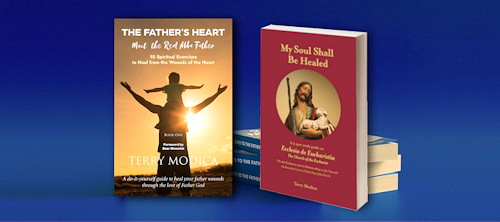“May love rule all our rituals.”
Good News Reflection for:
Tuesday of the 5th Week of Ordinary Time
Memorial of Saint Paul Miki, priest and martyr, and his companions, martyrs
February 6, 2024
Today’s Prayer:
Deliver me, Lord, from all those things that, though being good in their appearance, take me away from true charity and mercy. Amen.
![]() Subscribe to Today’s Saint Quote & Prayer:
Subscribe to Today’s Saint Quote & Prayer:
gnm.org/SaintQuotes/
Today’s Readings:
1 Kings 8:22-23, 27-30
Ps 84:2-5 and 10-11
Mark 7:1-13
bible.usccb.org/bible/readings/020624.cfm
USCCB Podcast of the Readings:
bible.usccb.org/podcasts/audio/daily-mass-reading-podcast-february-6-2024
The love behind the rituals
Oh what a blessing we receive when rituals are changed or taken away, because it makes us analyze why we were doing them in the first place!
Take, for example, what happens when a parish that has always knelt during the Consecration of the Eucharist is told by the pastor that they will stand from now on. There’s usually a big uproar. Why?
Standing is an official posture of respect. That’s why we stand during the reading of the Gospel. Theologically, it signifies that we are an Easter people; the Lord has conquered sin and death and now we live in his risen glory. So why do we stubbornly refuse to accept a change from the kneeling posture to standing?
Personally, I would rather kneel. It reminds me to be humble. Well, can’t I be humble without it? Frankly, Jesus deserves the most respect that we can muster, which means I should lie prostrate on the floor, except I don’t want to draw attention to myself and away from Jesus.
Sadly, there are many Catholics who kneel because everyone else is kneeling, not from genuine, heart-felt reverence for Christ. For them, it’s merely a human tradition. Jesus says in today’s Gospel reading, “This people pays me lip service but their heart is far from me. Empty is the reverence they do me ….”
Every ritual gesture and body posture during Mass should change us. Making the sign of the cross should put us more in touch with the Lord who died on the cross for us. Blessing ourselves with holy water should renew our baptismal connection to God and separate us from the worldliness that’s outside the church. Praying the “Our Father” should unite us to the people next to us.
“Disregarding God’s commandment while clinging to human tradition” occurs whenever we consider a ritual to be more important than a person. In the hierarchy of Church laws, the rules that prescribe most rituals have always been changeable “human traditions” designed to drive home to the heart a true practice of the faith; they are of lesser importance than the unchangeable laws of faith and morality that prescribe how to treat one another.
The bottom-line question is: What are my motives for doing — or not doing — a ritual? Will it increase my humility? Will it enhance my relationship with God and with the community? Does it spring from the heart or is my heart far from God at this moment?
May love rule our rituals and may our actions never be empty tradition!
For more on the topic of this subject, see our Faith Booster: “Do WHAT???” @ https://wordbytes.org/faith-booster-minis/do-what/.
© 2024 by Terry A. Modica
![]() To distribute the Good News Reflections in your church bulletin or in RCIA or faith sharing groups, please contact us.
To distribute the Good News Reflections in your church bulletin or in RCIA or faith sharing groups, please contact us.
![]() You can also receive this & more faith-builders by text message on your phone.
You can also receive this & more faith-builders by text message on your phone.
![]() Keep it going! This reflection reached you thanks to benefactors. Please support this ministry today.
Keep it going! This reflection reached you thanks to benefactors. Please support this ministry today.
![]() Post your prayer request.
Post your prayer request.
![]() How else can we serve you today? Visit our homepage.
How else can we serve you today? Visit our homepage.
![]() Search more reflections in our continually growing database.
Search more reflections in our continually growing database.
Homebound, Prison & Hospital Ministers are invited to print and distribute them without further permission.
Continue your prayer time with these:
Pray with Saints | Pray the Rosary | Other Prayers | Random Quotes.
Order and share Terry Modica's books
Please share this with others by inviting them to visit this page. You may also print this for your personal use and you may share the print-out with others.


![[ Listen to the podcast of this reflection ]](https://gnm.org/wp-content/uploads/2019/10/podbean.png)






 A free PDF document of this is available for your own personal use.
A free PDF document of this is available for your own personal use. How to Win Victories in Spiritual Warfare
How to Win Victories in Spiritual Warfare
 Knowing God’s Will and Doing it Well
Knowing God’s Will and Doing it Well Lessons from the Blessed Mother
Lessons from the Blessed Mother Daily Prayers with the Saints
Daily Prayers with the Saints